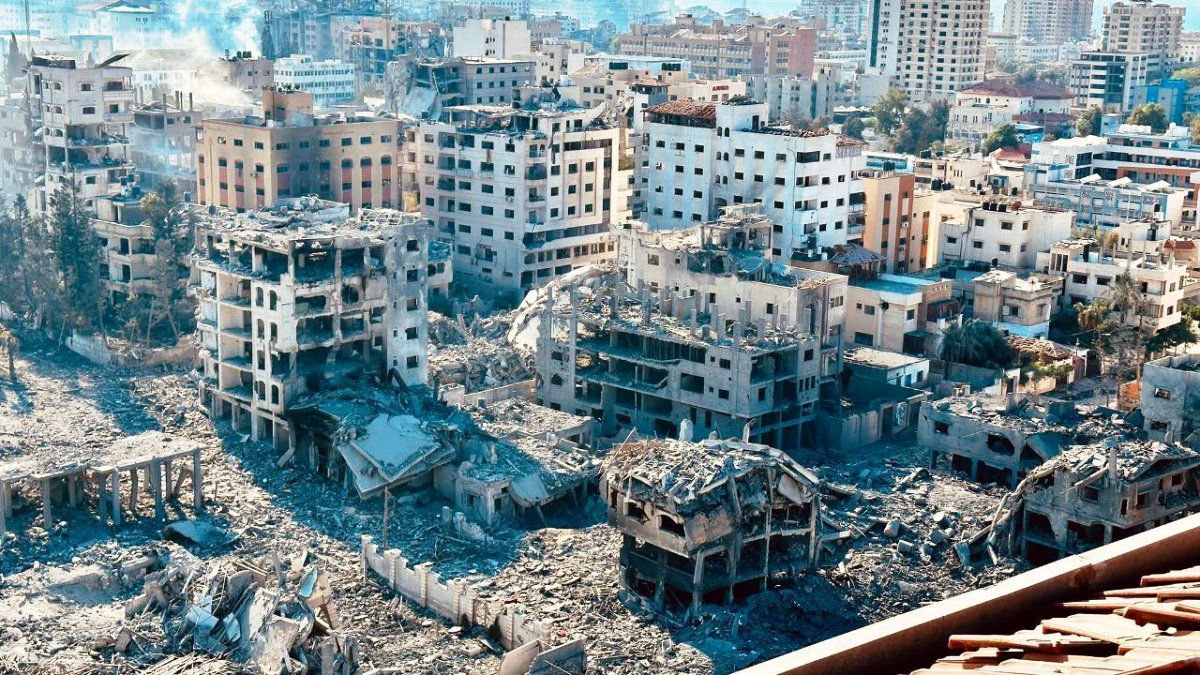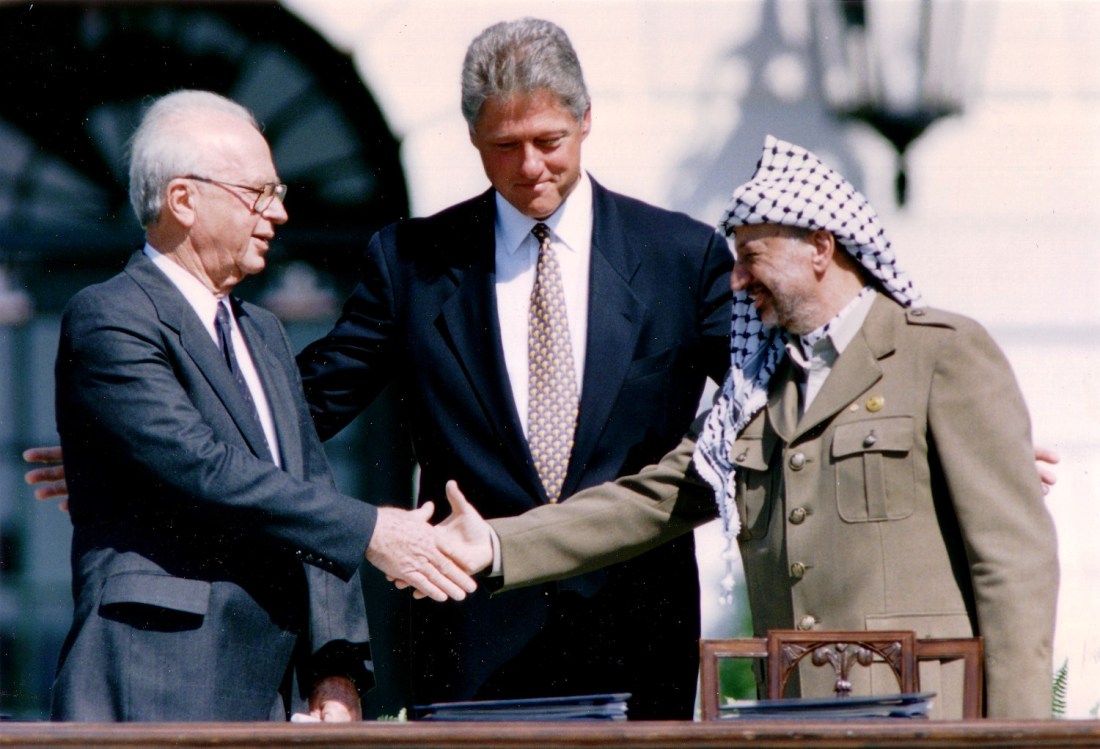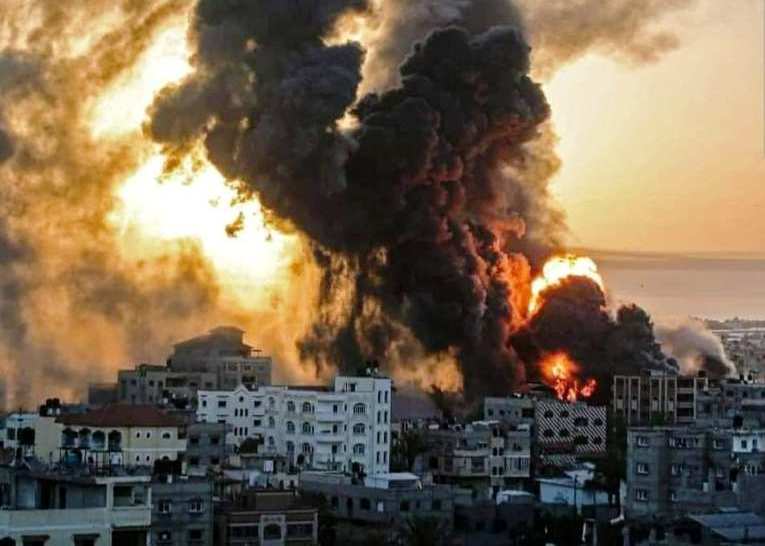by Khan Muzamil
Adania Shibli’s Minor Details, originally written in Arabic in 2017, was translated into English by Elisabeth Jaquette, and published by Fitzcarraldo Editions in August 2020. It was nominated for the National Book Award in the US and the International Booker Prize in the UK. It has also won Germany’s LiBeraturpreis as well.

In October 2023, the award ceremony for Palestinian author Adania Shibli’s novel, Minor Detail, at the Frankfurt Book Fair was cancelled, with Litprom, the German literary association behind the prize, attributing the decision to the ongoing Israel-Hamas war.
Shibli’s novel, recounting the 1949 rape and murder of a Palestinian Bedouin girl by Israeli soldiers, earned her the 2023 LiBeraturpreis, a German literature prize. The controversy surrounding the novel began in early 2023, with a Litprom jury member resigning and subsequent debates over its portrayal of Israel. Some critics accused the book of depicting Israel negatively, while others praised its merits.
The cancellation of the award ceremony sparked debate, with critics contending that it stifles opportunities for dialogue. Shibli’s work offers insights into contemporary Gaza, illustrating the enduring impact of historical atrocities on Palestinian life. The novel also delves into the manipulation of language in shaping the Israeli-Palestinian conflict.
The cancellation of the ceremony reflects the broader tensions in Germany regarding the Israel-Hamas conflict, with cultural institutions facing scrutiny over their stance on Israel. In 2020, concerns were raised about potential charges of antisemitism linked to associations with the Boycott, Divestment and Sanctions movement against Israel. The German Parliament labelled BDS as antisemitic, urging states to withhold subsidies from entities supporting the movement.The Frankfurt Book Fair has a history of political involvement, including instances like the 2017 campaign against far-right parties and the 2015 boycott by Iran when Salman Rushdie attended.
Juergen Boos, the director of the Frankfurt Book Fair, condemned Hamas’s actions during the conflict and expressed solidarity with the victims. The statement also mentioned the organisers’ decision to incorporate additional stage moments for Israeli perspectives at the fair.
The Plot
On August 12, 1949, members of an Israel Defence Forces (IDF) unit stationed at the Nirim outpost in the Negev desert were celebrating the successful establishment of their new camp near the agreed armistice line with Egypt. This event remained concealed until a 2003 investigation by the Israeli newspaper The Haaretz brought to light the distressing incidents that occurred during the celebration.
Earlier that day, the unit had captured a Bedouin girl who was subsequently subjected to a brutal assault at the party, followed by execution and burial in a shallow grave. Subsequently, twenty soldiers, including the unit’s commander, were incarcerated for their actions. The Israeli newspaper Haaretz’s investigation served as the inspiration for the book. The novel intertwines the historical incident with the narrative of a fictional woman investigating the crime in Ramallah decades later.
The Novel
Adania Shibli’s Minor Details, originally written in Arabic in 2017, was translated into English by Elisabeth Jaquette, and published by Fitzcarraldo Editions in August 2020. Minor Detail has received extensive critical acclaim, garnering nominations for the National Book Award in the US and the International Booker Prize in the UK. It has also won Germany’s LiBeraturpreis, an accolade that Adania Shibli was unable to receive due to the cancellation of the award ceremony by LitProm, citing the situation in Israel and Palestine.
Over 1,000 authors have protested this decision, asserting that it amounts to the silencing of a Palestinian voice. However, the book has faced mixed reviews in the German press, with some critics labelling it as antisemitic and anti-Israel.

The novel delves into the repercussions of silence and absence within Israel’s occupation of Palestine. The novel scrutinises the impact of historical events on the landscape of collective memory. It illustrates the enduring imprints on the land and the challenges posed by historical erasure. The narrative underscores the complexities of uncovering truth in a conflicted setting, offering a direct perspective on the Palestinian experience. Navigating through layers of personal and collective narratives, Shibli provides insights into the intricacies of confronting the past in a region marked by settler colonialism and historical struggles.
In the first part, the narrative immerses us in the Negev desert, where an unnamed Israeli soldier patrols the Egyptian border in 1949. The brutal dehumanisation of a Bedouin girl unfolds, her story absorbed by the arid sands as swiftly as her life is extinguished. Shibli’s prose is stark and unflinching, laying bare the cruelty and casual violence that underlies the occupation.
The second part unfolds in the present, depicting a Palestinian woman’s efforts in Ramallah to uncover the Bedouin girl’s story after she discovers a newspaper clipping detailing the girl’s fate years after the Negev desert incident. Shibli’s protagonist confronts the challenge of restricted movement but perseveres on a journey to Israeli archives and the Nirim outpost, revealing the consequences of depopulation and replacement in 1948.
The date aligns with her own birthday, igniting an obsessive quest to reconstruct the fragmented narrative. Motivated by a profound desire to amplify the silenced voice, she initiates a pilgrimage to the tragedy’s location, meticulously sifting through archives and museums in pursuit of historical fragments. The narrative emphasises the protagonist’s pursuit of truth through seemingly minor details amid the broader context of Israel’s occupation and violence.
Amidst the sterile confines of official repositories, she encounters only sanitised displays – mere echoes of history that fail to convey its human toll. Uniforms, jerry cans, and bars of soap, akin to the tools used by the dehumanising soldier, stand silent, their potential for violence carefully expunged. The truth she seeks, the authentic experience of the girl, remains tragically elusive.

The Protagonist
The woman’s frustration intensifies in the face of the impenetrable silence that characterises the prevailing narrative. Even a potential encounter with an elderly woman, a potential custodian of lived history, slips away – the pertinent question unposed, the opportunity forfeited. This missed connection encapsulates the central challenge of the novella: the inherent difficulty in fully reconstructing a systematically erased history, and the challenge of comprehending the extent of what has been silenced.
Amidst this prevailing sense of despair, Shibli introduces a ray of optimism. The truth, she suggests, does not reside in the sanitised environs of museums or the clinically documented pages of archives. Instead, it manifests in the fragments retained by individuals, in the hushed stories passed down through generations. The elderly woman and the unnamed Bedouin girl each hold integral pieces of the puzzle, awaiting discovery.
The Language
The novel navigates the dehumanising language employed by the IDF commander in 1949, echoing the rhetoric of progress and development used by Israel’s leaders, including Prime Minister David Ben-Gurion. Shibli emphasises the recurrent use of dehumanisation in justifying violence throughout the conflict, connecting it to recent instances of similar language by Israel’s defence minister during the Gaza siege.
Minor Details does not provide facile solutions or cathartic resolutions. It serves as an unyielding exploration of the human toll exacted by conflict, starkly underlining the narratives that have been forfeited and the reverberating silences across generations. The novel serves as a poignant reminder of the ongoing responsibility to acknowledge the past and understand its role in shaping the current events in Israel and Palestine, particularly in Gaza.
(The author is a journalism and media student. Ideas are personal.)















